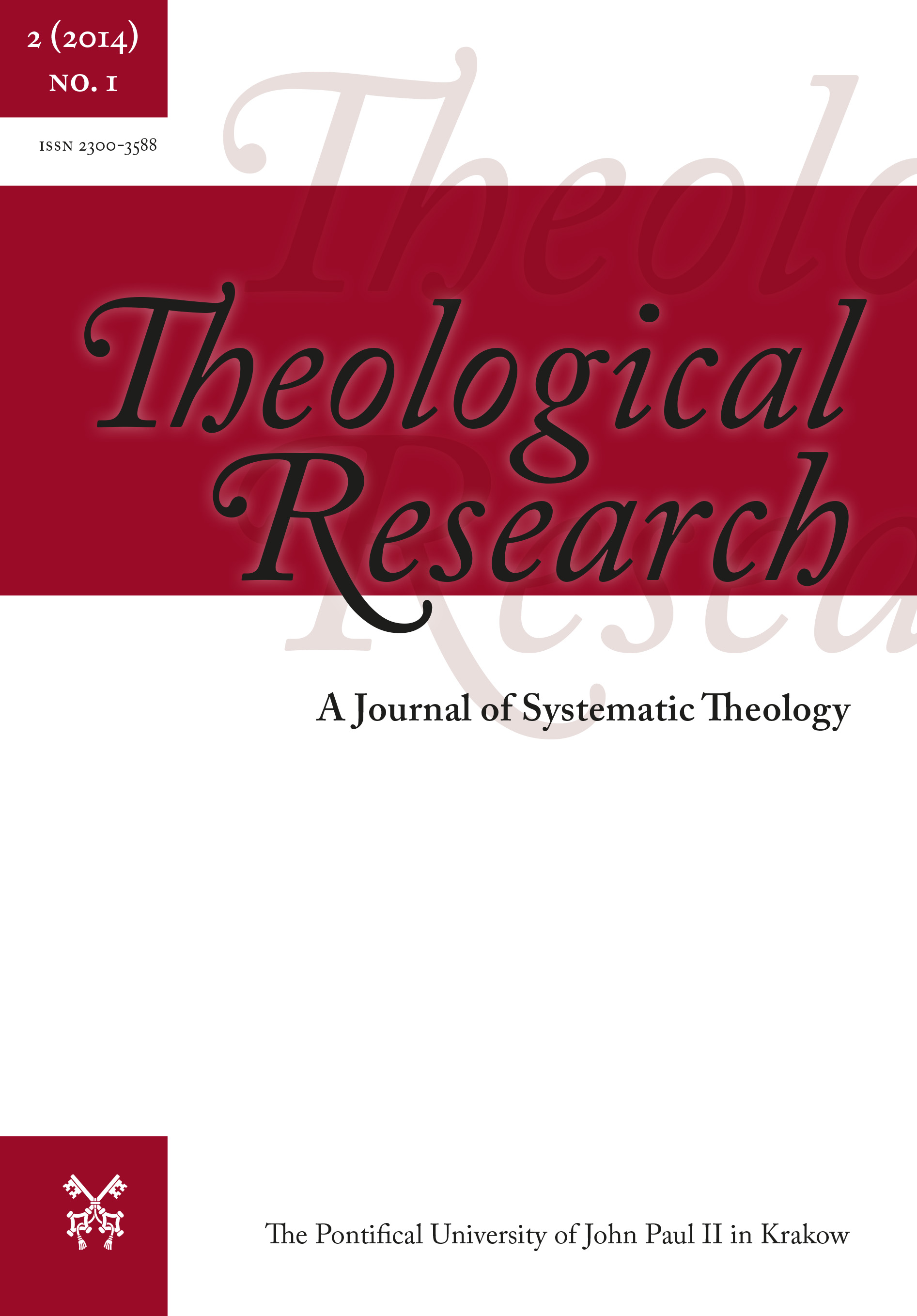Christian Anthropology Versus the New Anthropology and the Quest for Human Perfection
DOI:
https://doi.org/10.15633/thr.676Słowa kluczowe:
human perfection, Christian personalism, modern science, modern philosophy, dualism, technique, spiritual effort, virtueAbstrakt
In the current debate, we witness a conflict between the Christian concept of man vs. concepts that justify in vitro fertilization (IVF), genetic enhancement, or the reassignment of sexuality. Modern concepts cannot disregard the historic perspective of the consistent doctrines that the Catholic Church has maintained throughout her 2000-year history and which constitute the precursors of contemporary bioethics. Although she has adjusted specifics occasionally to address new developments, she has always based doctrine on immutable core principles. The current conflict lies neither in the novelty of the new proposals, nor in a conflict between religious and lay worldviews, but rather in concepts of man and human perfection. Some human traits may be regarded as disordered and incompatible with a particular concept of human perfection. The new proposals tend to involve physical changes based on technological manipulation, with a goal of developing a superior being, while Christian proposals do not seek to manipulate man’s being, but to develop his existing potential within criteria of acceptable reason. The new proposals rely on a Cartesian view which constitutes a human as his mind (cogito ergo sum), which has dominion over his body including authority to reengineer it according to any project that mind conceives. In contrast, the Christian concept views the human subject as a unity of mind and body, which may not be reshaped to meet a questionable goal of human perfection. The technological tools within the new concepts are in no way superior to the more personal attributes like virtues, perfection of the human will, prayer, and ascesis within the Christian concept.Bibliografia
Henrici P., From Progress to Development: A History of Ideas, in: P. Land (ed.) Theology Meets Progress, Rome 1971.
Huber C., Limiti della validità del sapere scientifico, in: A. C. Spagnolo, E. Sgreccia (eds.) Lineamenti di etica della sperimentazione clinica, Milano 1994, p. 29–38.
Kraj T., Granice genetycznego ulepszania człowieka [The Acceptable Limits of Genetic Enhancement in Humans], Kraków 2010.
Kraj T., Scientific Progress as a Moral Problem. Implications in Modern Genetics, doctorate prepared in the Pontifical John Paul II Institute for Study on Marriage and Family at the Lateran University, Rome 1999.
Simon Y., The Definition of Moral Virtue, New York 1986.
The President’s Council on Bioethics, A Report: Beyond Therapy. Biotechnology and the Pursuit of Happiness, Washington D.C. 2003.
Pobrania
Opublikowane
Numer
Dział
Licencja
Autrzy publikujący w czasopiśmie "Theological Research" zgadzają się na następujące zasady:
a. Autorzy przenoszą na rzecz Uniwersytetu Jana Pawła II w Krakowie (UPJPII) autorskie prawa majątkowe do swoich tekstów.
b. UPJPII udostępnia teksty na platformie wydawniczej, na licencji Creative Commons Uznanie autorstwa-Użycie niekomercyjne-Bez utworów zależnych 3.0 Polska, która umożliwia ich pobieranie i udostępnianie (np. w repozytoriach naukowych), o ile zostaną spełnione warunki:
- podany autor i tytuł tekstu,
- podane miejsce publikacji (tytuł czasopisma i adres internetowy do oryginalnie opublikowanego tekstu),
- tekst będzie dystrybuowany w sposób niekomercyjny.

